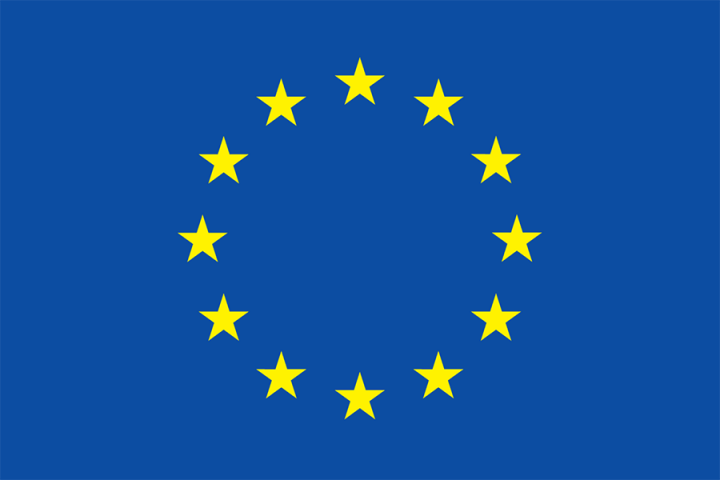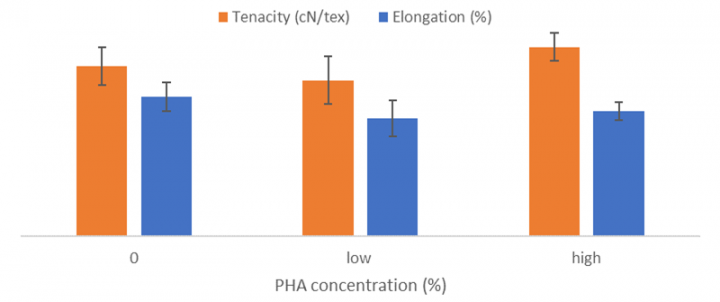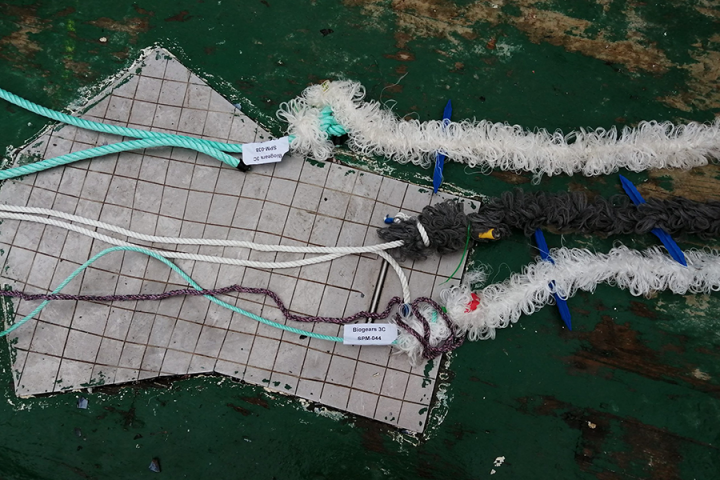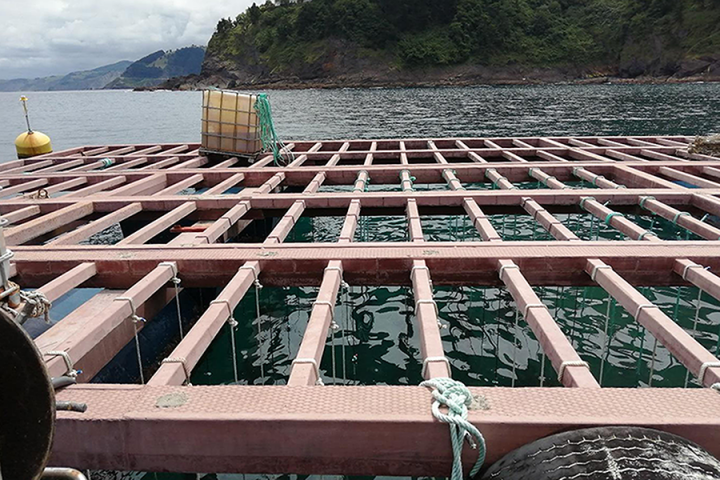In June 2021, the EMFF funded project "BIOGEARS" finalized three prototypes of bio-based ropes, made from the yarns developed by Centexbel (Belgium).
The bio-based ropes will provide an alternative to the widely available petrol-based (non-recyclable) commercial ropes.
Rope development
- Project partner GAIKER developed bio-based (PLA) compounds that included additives such as mineral and organic fillers and blends with other biopolymers.
- These compounds have been processed on the Centexbel pilot filament extrusion equipment on which we developed and optimized both mono- and multi-filaments. Most compounds showed a good processability and resulted in mechanical properties similar to the neat PLA as is presented in the figure below for blends with 1-10 % PHA addition.
Figure 1: Properties of BIOGEARS filaments based on a PLA/PHA blend
- After the optimization process, Centexbel produced the filaments on a larger scale allowing project partner ITSASKORDA to manufacture the rope prototypes. The PLA-based filaments could be well processed and the resulting rope properties met the target requirements.
- ITSASKORDA produced ropes designed for mussels as well as for seaweed aquaculture.
Fig. 2 - The three bio-based ropes were manufactured by project partner ITSASKORDA (Spain) and contain bio-based materials.
Fig. 3 - The biogears are now being tested in mussel and seaweed Integrated Multi-Trophic Aquaculture (IMTA) setups in offshore and sheltered marine areas, including the AZTI experimental longline facilities (SE Bay of Biscay) and the AZTI experimental raft in Mutriku (Spain).
Field test
The sea tests are taking place in three experimental sites, under different energy conditions, including
- an exposed-high energy area, where ropes have been deployed in a longline at 50m depth
- a sheltered-low energy area, where ropes have been suspended from a raft at 15 m depth and
- a marine station, in which seeding of seaweed is taking place.
With this prototype and trials, BIOGEARS aims to bridge the current technological gaps and extend the potential use of sustainable materials in the sector. The project results support the creation of a bio-based value chain under the EU Bioeconomy Strategy framework.

Acknowledgement
The BIOGEARS project will run from 2019 – 2023 with an EU contribution of €945,000, funded by the European Union CINEA EMFF programme under the EMFF-0102018 Blue Labs call.







